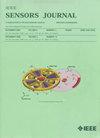多系统中基于重要性的DoS攻击优化调度
IF 4.3
2区 综合性期刊
Q1 ENGINEERING, ELECTRICAL & ELECTRONIC
引用次数: 0
摘要
研究了多系统中远程状态估计的安全性问题。与大多数研究不同的是,我们研究了一种新的拒绝服务攻击,我们称之为基于重要性的拒绝服务攻击。在这里,子系统重要性被定义为每个子系统对整体状态估计精度的定量影响,这是确保正确决策的关键。这项工作假设有N个子系统,由于能量限制,DoS攻击者只能攻击N个通信通道中的M个。攻击者的目标是确定降低远程状态估计性能的最佳策略。考虑了两种攻击场景:基于模型的场景,攻击者了解系统的整体动态和参数;无模型的场景,攻击者无法访问无线信道模型。该问题被表述为具有无限时间范围的马尔可夫决策过程(MDP)。此外,还考虑了各种场景下不同重要函数形式所对应的最优攻击策略,并针对一些具体情况给出了解决方案。数值算例验证了所提策略的有效性。本文章由计算机程序翻译,如有差异,请以英文原文为准。
Optimal Scheduling of Importance-Based DoS Attack in Multisystems
This article is concerned with the security of remote state estimation in multisystems. Different from most works, we study a novel denial-of-service (DoS) attack, which we call an importance-based DoS attack. Here, subsystem importance is defined as the quantitative impact of each subsystem on the overall state estimation accuracy, which is critical for ensuring correct decision-making. This work assumes that there are N subsystems, and the DoS attacker can only target M out of N communication channels due to energy constraints. The attacker’s goal is to determine the optimal strategy to degrade the performance of remote state estimation. Two attack scenarios are considered: a model-based scenario where the attacker has knowledge of the overall dynamics and parameters of the system and a model-free scenario where the attacker lacks access to the wireless channel model. The problem is formulated as a Markov decision process (MDP) with an infinite time horizon. In addition, the optimal attack strategies corresponding to different importance function forms under various scenarios are considered, and solutions for some specific cases are provided. Numerical examples are presented to demonstrate the effectiveness of the proposed strategies.
求助全文
通过发布文献求助,成功后即可免费获取论文全文。
去求助
来源期刊

IEEE Sensors Journal
工程技术-工程:电子与电气
CiteScore
7.70
自引率
14.00%
发文量
2058
审稿时长
5.2 months
期刊介绍:
The fields of interest of the IEEE Sensors Journal are the theory, design , fabrication, manufacturing and applications of devices for sensing and transducing physical, chemical and biological phenomena, with emphasis on the electronics and physics aspect of sensors and integrated sensors-actuators. IEEE Sensors Journal deals with the following:
-Sensor Phenomenology, Modelling, and Evaluation
-Sensor Materials, Processing, and Fabrication
-Chemical and Gas Sensors
-Microfluidics and Biosensors
-Optical Sensors
-Physical Sensors: Temperature, Mechanical, Magnetic, and others
-Acoustic and Ultrasonic Sensors
-Sensor Packaging
-Sensor Networks
-Sensor Applications
-Sensor Systems: Signals, Processing, and Interfaces
-Actuators and Sensor Power Systems
-Sensor Signal Processing for high precision and stability (amplification, filtering, linearization, modulation/demodulation) and under harsh conditions (EMC, radiation, humidity, temperature); energy consumption/harvesting
-Sensor Data Processing (soft computing with sensor data, e.g., pattern recognition, machine learning, evolutionary computation; sensor data fusion, processing of wave e.g., electromagnetic and acoustic; and non-wave, e.g., chemical, gravity, particle, thermal, radiative and non-radiative sensor data, detection, estimation and classification based on sensor data)
-Sensors in Industrial Practice
 求助内容:
求助内容: 应助结果提醒方式:
应助结果提醒方式:


